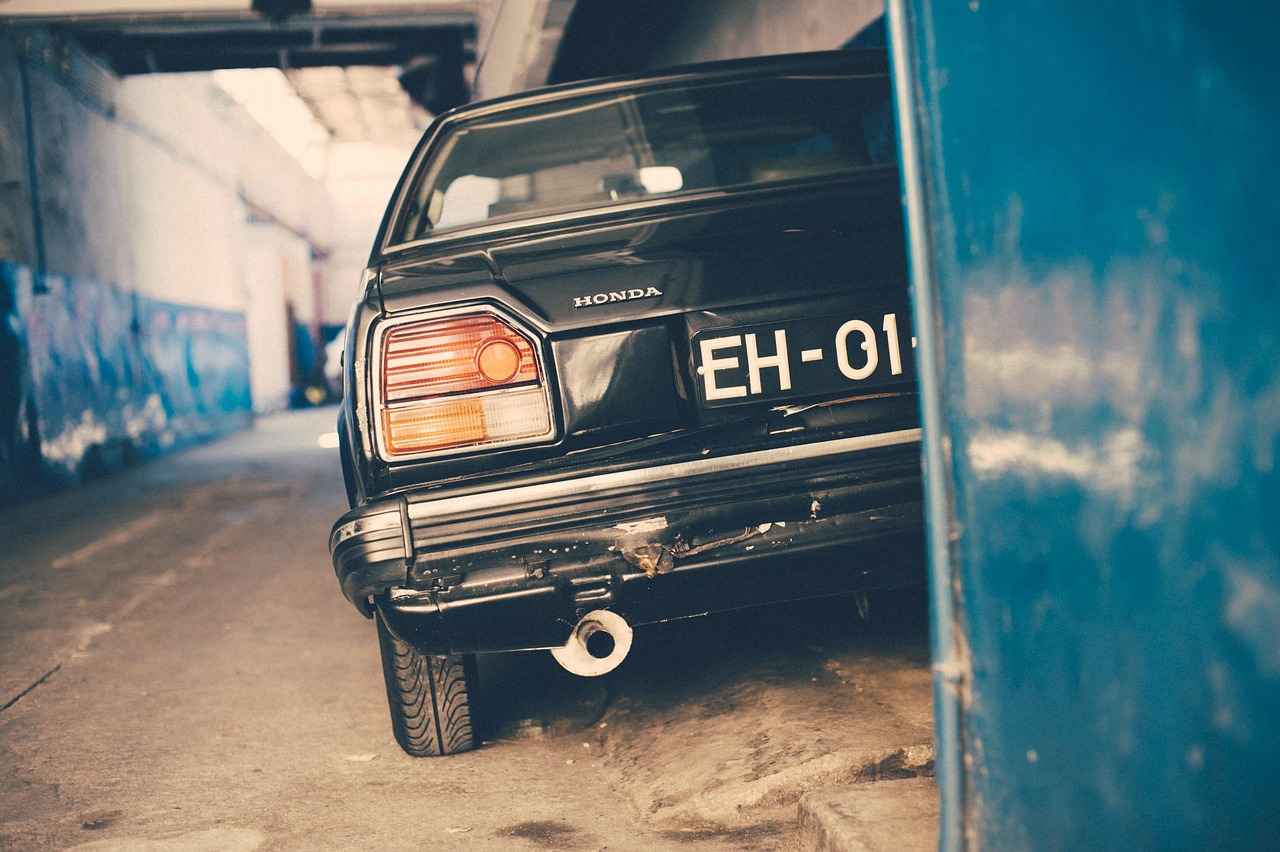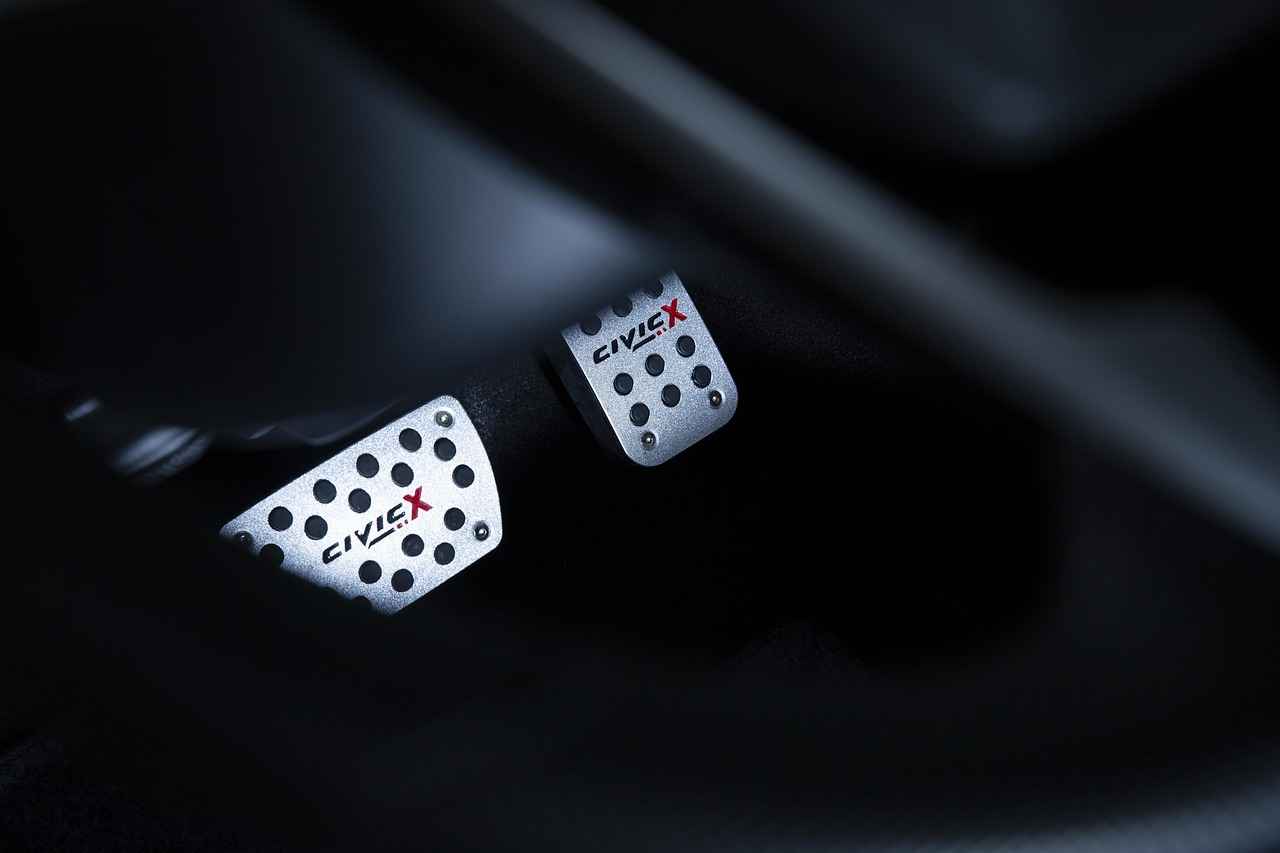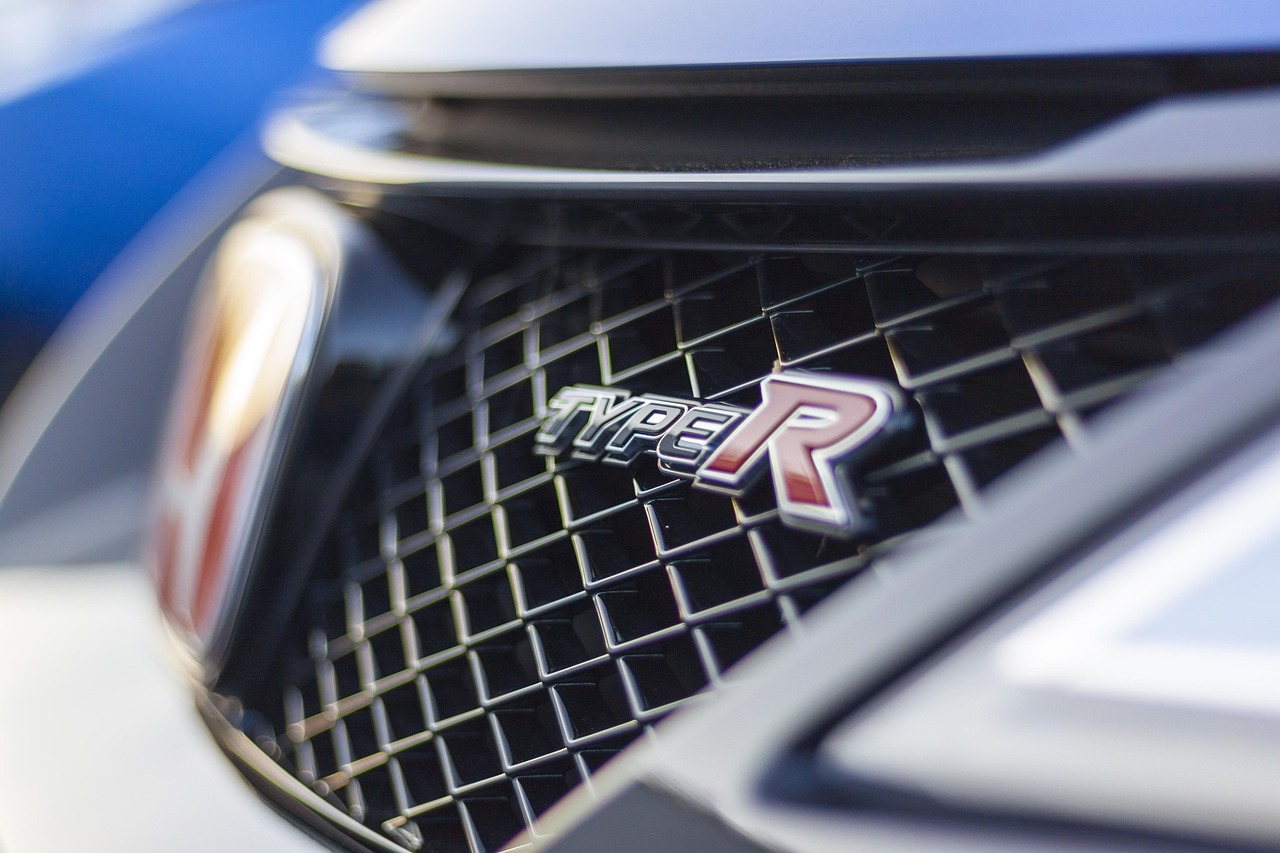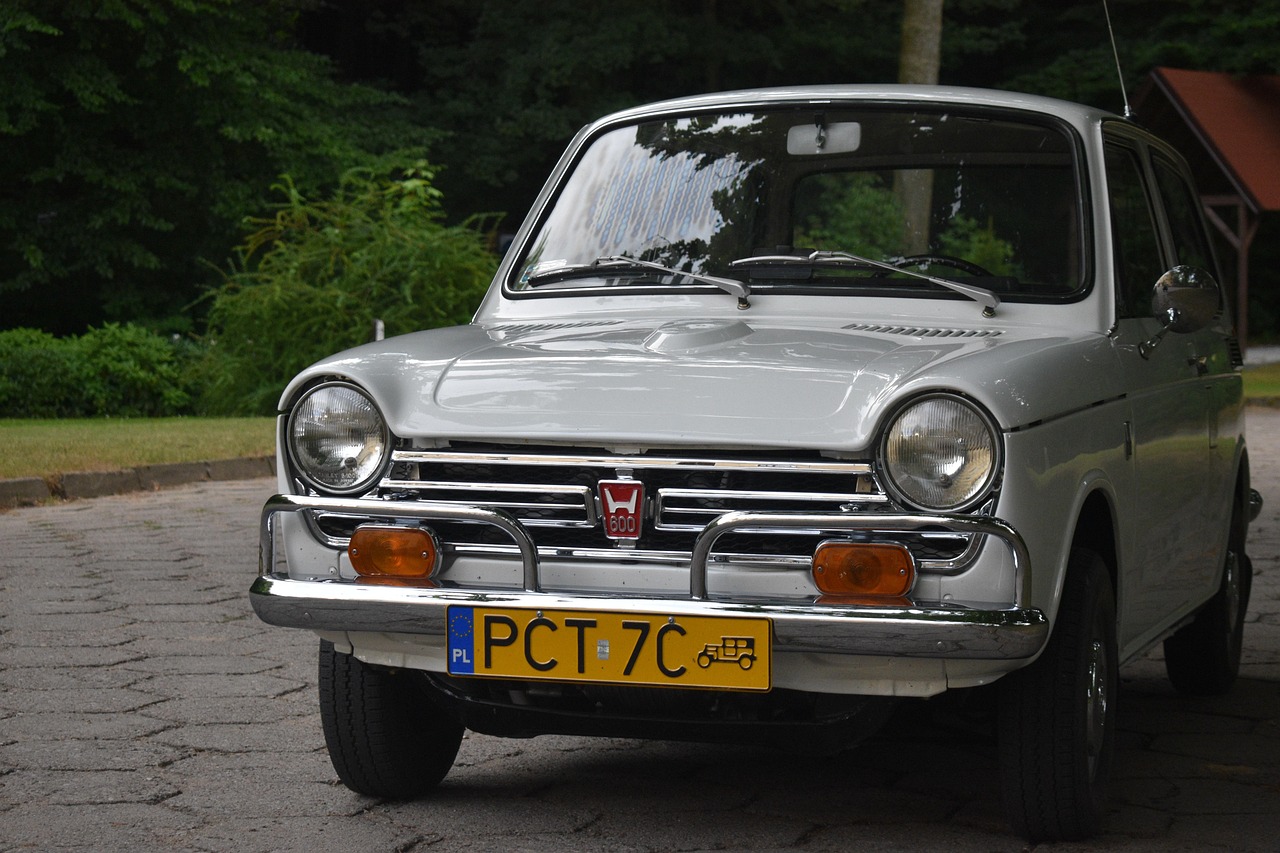The 2001 Honda Civic has earned a reputation as a reliable and efficient vehicle, making it a popular choice for drivers seeking a dependable car. This article will provide an in-depth look at the various aspects of the 2001 Honda Civic, highlighting its strengths in reliability, performance, and features that appeal to a wide range of buyers.
Overview of the 2001 Honda Civic
The 2001 Honda Civic stands out in the compact car market due to its durability and fuel efficiency. With a sleek design and a reputation for longevity, this model is ideal for both city driving and long commutes. Its compact size allows for easy maneuverability while offering ample interior space.
Engine Performance and Specifications
The Civic offers impressive engine performance. Buyers can choose from several engine options that cater to different driving preferences, ensuring a balance of power and efficiency.
- Available Engine Options: The 2001 Honda Civic features two primary engine choices:
- 1.7L I4 Engine: This standard engine provides a harmonious blend of power and fuel efficiency, generating up to 115 horsepower.
- 2.0L VTEC Engine: For those seeking enhanced performance, the VTEC option delivers increased horsepower and torque, making it ideal for spirited driving.
Fuel Efficiency Ratings
One of the standout features of the 2001 Honda Civic is its fuel efficiency. The vehicle achieves impressive ratings, making it a cost-effective choice for daily commutes and long drives.
Interior Comfort and Features
The interior of the 2001 Civic is designed with both comfort and functionality in mind. With seating for up to five passengers, the cabin offers ample space and ergonomic seating.
- Technology and Entertainment Options: The 2001 Civic includes modern technology features such as:
- AM/FM radio and CD player
- Available Bluetooth connectivity for hands-free calling
Safety Features and Ratings
Safety is a top priority in the 2001 Honda Civic. It comes equipped with essential safety features, including:
- Anti-lock braking system (ABS)
- Front airbags for driver and passenger protection
Maintenance and Reliability
The 2001 Honda Civic is known for its low maintenance costs and long-term reliability. Many owners report minimal issues over the years, solidifying its reputation as a dependable vehicle.
- Common Maintenance Issues: While generally reliable, some owners may encounter:
- Minor electrical issues
- Wear on suspension components
Overall, the 2001 Honda Civic remains a top choice for drivers seeking a reliable and efficient compact car that meets the demands of everyday life.

Overview of the 2001 Honda Civic
The 2001 Honda Civic stands out as an exceptional vehicle, celebrated for its durability and fuel efficiency. This compact car has earned a loyal following among drivers who prioritize reliability and cost-effectiveness. In this section, we will explore the key specifications and features that contribute to the Civic’s popularity, making it a top choice for both new and seasoned drivers alike.
- Engine Options: The 2001 Honda Civic is available with various engine options, including the standard 1.7L I4 engine and the more powerful 2.0L VTEC engine. These engines are designed to cater to different driving preferences, offering a blend of performance and efficiency.
- Fuel Economy: Known for its impressive fuel economy, the Civic delivers exceptional mileage, making it an economical choice for daily commuting. Drivers can expect to achieve around 30 miles per gallon in the city and up to 38 miles per gallon on the highway.
- Interior Comfort: The interior of the Civic is thoughtfully designed, providing ample space for up to five passengers. With comfortable seating and quality materials, the cabin enhances the overall driving experience.
- Safety Features: Safety is a key consideration for any vehicle, and the 2001 Honda Civic is equipped with essential safety features, including airbags and anti-lock brakes, ensuring a secure ride for all occupants.
- Maintenance and Reliability: Renowned for its low maintenance costs and long-term reliability, the Civic has a solid reputation for durability, making it a wise investment for budget-conscious buyers.
Overall, the 2001 Honda Civic combines practicality with performance, making it a reliable choice for drivers seeking a dependable vehicle that meets their everyday needs. Its blend of efficiency, comfort, and safety features solidifies its status as a beloved model in the compact car segment.

Engine Performance and Specifications
The 2001 Honda Civic is celebrated not just for its reliability but also for its impressive engine performance. This model offers a range of engine options, each designed to meet different driving preferences while ensuring fuel efficiency. In this section, we will explore the various engine specifications and how they contribute to the overall driving experience.
The 2001 Honda Civic features several engine choices, allowing drivers to select the one that best fits their needs. The primary options include:
- 1.7L I4 Engine
- 2.0L VTEC Engine
The standard 1.7L inline-4 engine is a well-balanced choice, delivering a blend of power and efficiency. This engine produces approximately 115 horsepower and 110 lb-ft of torque. With a fuel economy rating of up to 30 mpg in the city and 38 mpg on the highway, it is ideal for daily commuting.
For those seeking enhanced performance, the 2.0L VTEC engine is an excellent alternative. This engine offers a boost in power, generating around 135 horsepower and 130 lb-ft of torque. The VTEC technology allows for improved efficiency and responsiveness, making it a favorite among enthusiasts. Its fuel economy remains competitive, achieving 28 mpg in the city and 36 mpg on the highway, which is commendable for a performance-oriented engine.
Fuel efficiency is a critical consideration for many drivers. The 2001 Honda Civic excels in this area, providing economical options that help reduce overall fuel costs. Both engine variants are designed to maximize fuel efficiency without sacrificing performance, making them suitable for both city and highway driving.
In summary, the engine performance of the 2001 Honda Civic is impressive, offering a range of options that cater to different driving styles while maintaining excellent fuel efficiency. Whether you opt for the standard 1.7L I4 or the more powerful 2.0L VTEC engine, you can expect a reliable and enjoyable driving experience.
Available Engine Options
The 2001 Honda Civic stands out in the compact car segment, not only for its reliability but also for the variety of engine options it offers. Each engine is designed to cater to different driving preferences, making the Civic a versatile choice for a wide range of drivers. Below, we delve into the specifics of these engines, highlighting their performance metrics and how they contribute to the overall driving experience.
The 2001 Honda Civic provides a selection of engines that appeal to both efficiency seekers and performance enthusiasts. The main engine options include:
- 1.7L I4 Engine: This standard engine is celebrated for its balance of power and fuel efficiency. It delivers approximately 115 horsepower and 110 lb-ft of torque. With an impressive fuel economy rating of around 30 mpg in the city and 38 mpg on the highway, this engine is ideal for daily commuting.
- 2.0L VTEC Engine: For those seeking enhanced performance, the optional 2.0L VTEC engine is a compelling choice. It generates up to 135 horsepower and 130 lb-ft of torque, offering a more spirited driving experience. This engine is particularly noted for its responsive acceleration and improved fuel efficiency, achieving around 28 mpg in the city and 36 mpg on the highway.
- Performance Variants: In addition to these standard options, the Civic also features performance-oriented variants such as the Civic Si, which includes a more powerful engine tuned for sportier dynamics. These variants are equipped with sport-tuned suspensions and other enhancements that elevate the driving experience.
Each engine option in the 2001 Honda Civic is designed to meet specific driving needs, whether it’s for fuel efficiency, everyday usability, or spirited performance. This flexibility makes the Civic a preferred choice among a diverse group of drivers, ensuring that there is an engine configuration to suit almost any preference.
1.7L I4 Engine
The in the 2001 Honda Civic has gained a reputation for its remarkable balance of power and fuel efficiency. This engine is designed to cater to a wide range of driving needs, making it one of the most popular choices among compact cars. In this section, we will delve into its performance metrics, including horsepower, torque, and fuel economy ratings.
With a power output of approximately 115 horsepower at 6,300 RPM, the 1.7L I4 engine provides a responsive driving experience. It delivers torque of around 110 lb-ft at 4,500 RPM, ensuring that acceleration remains smooth and efficient. This combination of horsepower and torque allows the Civic to handle both city driving and highway cruising with ease.
One of the standout features of the 1.7L I4 engine is its impressive fuel economy. The Civic achieves an estimated city mileage of 28 miles per gallon and a remarkable 35 miles per gallon on the highway. This efficiency not only makes it an economical choice for daily commutes but also reduces the frequency of fuel stops during longer journeys.
- Horsepower: 115 hp @ 6,300 RPM
- Torque: 110 lb-ft @ 4,500 RPM
- City Fuel Economy: 28 mpg
- Highway Fuel Economy: 35 mpg
The engineering behind the 1.7L I4 engine emphasizes reliability and longevity, which is a hallmark of Honda vehicles. Owners of the 2001 Civic often report minimal issues with this engine, making it a trusted choice for those seeking a dependable vehicle.
In summary, the exemplifies Honda’s commitment to providing a well-rounded driving experience, blending performance with efficiency to meet the expectations of diverse drivers.
Performance of the 2.0L VTEC Engine
The 2001 Honda Civic is a standout in the compact car segment, particularly due to its engine options. Among these, the 2.0L VTEC engine is notable for its enhanced performance capabilities. This section delves into the advantages of the 2.0L VTEC engine and how it compares to the standard 1.7L I4 engine in terms of power and efficiency.
The 2.0L VTEC engine offers a significant boost in horsepower and torque, making it an attractive option for those seeking a more dynamic driving experience. With its advanced Variable Valve Timing and Lift Electronic Control (VTEC) technology, this engine optimizes performance across various RPM ranges. As a result, drivers can enjoy a more responsive throttle and improved acceleration, particularly during highway merging or overtaking maneuvers.
| Engine Type | Horsepower | Torque | Fuel Economy (City/Highway) |
|---|---|---|---|
| 1.7L I4 | 115 hp | 110 lb-ft | 28/36 mpg |
| 2.0L VTEC | 140 hp | 130 lb-ft | 26/34 mpg |
When comparing the two engines, the 2.0L VTEC engine stands out with its 140 horsepower and 130 lb-ft of torque, which is a marked improvement over the standard 1.7L I4’s 115 horsepower and 110 lb-ft of torque. Although the fuel economy is slightly lower for the 2.0L VTEC at 26 mpg in the city and 34 mpg on the highway, the trade-off in power is often worth it for performance enthusiasts.
In summary, the 2.0L VTEC engine not only enhances the overall driving experience of the 2001 Honda Civic but also solidifies its status as a reliable choice for those who prioritize both performance and efficiency. This engine option provides a balance that caters to a variety of driving styles, ensuring that it meets the needs of diverse drivers.
Fuel Efficiency Ratings
Fuel efficiency is a critical consideration for many drivers, particularly in today’s economy where fuel prices can significantly impact daily expenses. The 2001 Honda Civic stands out in this regard, offering impressive fuel economy ratings that cater to both budget-conscious individuals and environmentally aware consumers.
When it comes to fuel efficiency, the 2001 Honda Civic excels with its various engine options. The standard 1.7L I4 engine provides an estimated fuel economy of around 28 miles per gallon (mpg) in the city and 36 mpg on the highway. This remarkable efficiency makes it an ideal choice for daily commutes, allowing drivers to save money on fuel while enjoying a reliable driving experience.
Additionally, the 2.0L VTEC engine option, designed for those seeking a bit more power, still manages to deliver competitive fuel economy figures. With an average of 26 mpg in the city and 34 mpg on the highway, this engine balances performance and efficiency effectively, appealing to a wider range of driving preferences.
| Engine Type | City MPG | Highway MPG |
|---|---|---|
| 1.7L I4 | 28 | 36 |
| 2.0L VTEC | 26 | 34 |
Furthermore, the 2001 Honda Civic incorporates advanced engineering techniques to enhance fuel efficiency. Features such as a lightweight body and aerodynamic design contribute to reduced drag, allowing for better fuel consumption. These factors, combined with Honda’s commitment to producing efficient vehicles, make the Civic a standout option in the compact car segment.
Overall, the fuel economy ratings of the 2001 Honda Civic not only highlight its cost-effective nature but also its suitability for environmentally conscious drivers. With its combination of efficiency, reliability, and performance, the Civic remains a top choice for those looking to optimize their driving experience without breaking the bank.

Interior Comfort and Features
The 2001 Honda Civic is celebrated not just for its performance but also for its thoughtfully designed interior that prioritizes both comfort and practicality. In this section, we delve deeper into the cabin design, the quality of materials used, and the array of features that significantly enhance the overall driving experience.
The cabin of the 2001 Honda Civic is crafted to create a welcoming atmosphere. The layout is intuitive, allowing drivers and passengers to access controls easily. The dashboard features a clean design, with clearly labeled instruments that enhance usability. Ample headroom and legroom make it comfortable for all passengers, ensuring that long drives are enjoyable.
Honda has prioritized quality in the materials used throughout the Civic’s interior. Soft-touch plastics and durable upholstery contribute to a refined feel, while the overall build quality reflects Honda’s commitment to longevity. The seats are designed with ergonomics in mind, providing excellent support during commutes or road trips.
- Air Conditioning: Standard air conditioning ensures a comfortable environment, no matter the weather.
- Audio System: Equipped with a quality audio system, the Civic allows drivers to enjoy their favorite music with clarity.
- Power Windows and Locks: These features add convenience, making it easy to manage windows and doors with just a touch.
- Adjustable Steering Wheel: The steering wheel can be adjusted to suit the driver’s preference, enhancing comfort and control.
Practicality is a hallmark of the Civic’s interior. Numerous storage compartments are strategically placed throughout the cabin, including cup holders, door pockets, and a spacious glove compartment. The trunk space is also generous, making it easy to transport luggage or groceries.
The Civic comfortably seats up to five passengers, ensuring that everyone has enough space. The rear seats can easily accommodate adult passengers, making it a versatile choice for families or groups. The option for fold-down rear seats adds flexibility for transporting larger items.
Seating Capacity and Comfort
The 2001 Honda Civic is designed with seating for up to five passengers, ensuring that comfort is a top priority for both drivers and passengers alike. This section delves into the ergonomics of the seats and the overall passenger space, showcasing how the Civic excels in providing a pleasant driving experience.
One of the standout features of the Civic is its spacious interior. The cabin is thoughtfully designed to maximize legroom and headroom, allowing passengers to enjoy long journeys without feeling cramped. The front seats are particularly well-crafted, offering excellent support and adjustability to accommodate various body types.
| Seat Features | Description |
|---|---|
| Adjustable Front Seats | Both front seats can be adjusted to find the perfect driving position, enhancing comfort. |
| Rear Seat Space | The rear seats provide ample space for passengers, making it suitable for family outings. |
| Quality Materials | High-quality upholstery and materials used throughout the cabin enhance the overall feel of the interior. |
In addition to the physical comfort, the Civic’s interior is designed with noise insulation features that contribute to a quieter ride. This means that even at highway speeds, passengers can hold conversations without raising their voices. The layout of controls and features is intuitive, ensuring that everything is within easy reach, which adds to the overall user experience.
Furthermore, the Civic’s trunk space is generous, providing ample room for luggage or shopping, making it a practical choice for everyday use. The combination of comfort, functionality, and space makes the 2001 Honda Civic a commendable option for those seeking a reliable and comfortable vehicle.
Technology and Entertainment Options
The 2001 Honda Civic stands out not only for its reliability but also for its that cater to the evolving needs of modern drivers. In this section, we will explore the various features that enhance the driving experience, ensuring that both drivers and passengers enjoy their time on the road.
One of the key highlights of the 2001 Civic is its audio system. The vehicle is equipped with a standard AM/FM radio and a CD player, providing a variety of listening options. For those who appreciate higher audio quality, the Civic also offers an available premium sound system, which includes additional speakers and enhanced sound clarity. This feature is particularly appealing for music enthusiasts who value high-fidelity audio.
In addition to the audio capabilities, the Civic provides several connectivity features that are essential for today’s drivers. The inclusion of a cassette player in some trims allows for the use of older media, catering to those who may still have cassette tapes. Furthermore, the availability of an auxiliary input jack enables drivers to connect their portable devices, such as MP3 players or smartphones, directly to the car’s audio system. This feature is crucial for those who prefer customized playlists during their drives.
Moreover, the 2001 Civic offers convenience features that enhance the overall user experience. For example, some models come equipped with a remote keyless entry system, allowing for easy access to the vehicle without fumbling for keys. This feature not only adds convenience but also enhances security.
For drivers who prioritize functionality, the Civic’s dashboard layout is designed with user-friendliness in mind. The controls for the audio system and other features are intuitively placed, making it easy for drivers to adjust settings without distraction. Additionally, the inclusion of a trip computer in certain trims provides valuable information such as fuel consumption and distance traveled, helping drivers make informed decisions on the road.
In summary, the 2001 Honda Civic is equipped with a variety of technology and entertainment options that cater to the needs of modern drivers. From its audio systems to connectivity features and convenience enhancements, the Civic ensures that every journey is enjoyable and engaging.

Safety Features and Ratings
Safety is a critical aspect that every driver considers when choosing a vehicle, and the 2001 Honda Civic excels in this area. This section provides an in-depth look at the safety features integrated into the Civic, along with its ratings from various safety organizations, ensuring that both drivers and passengers can travel with peace of mind.
The 2001 Honda Civic comes equipped with a range of standard safety features designed to protect occupants in various driving conditions. Key safety equipment includes:
- Anti-lock Braking System (ABS) – Enhances braking control during emergency stops.
- Dual Front Airbags – Provides essential protection in the event of a collision.
- Side-Impact Door Beams – Reinforces the vehicle’s structure to protect against side collisions.
- Three-Point Seatbelts – Ensures that all passengers are securely restrained.
Understanding the safety performance of a vehicle is crucial, and the 2001 Honda Civic has received favorable crash test ratings from reputable organizations. The National Highway Traffic Safety Administration (NHTSA) rated the Civic with:
| Test Type | Rating |
|---|---|
| Frontal Crash Test | 4 out of 5 stars |
| Side Crash Test | 5 out of 5 stars |
| Rollover Resistance | 4 out of 5 stars |
These ratings reflect the Civic’s solid construction and effective safety features, which contribute to its reputation as a safe vehicle.
For those seeking additional safety enhancements, the 2001 Honda Civic offers optional features such as:
- Traction Control – Helps maintain grip on slippery surfaces.
- Vehicle Stability Assist – Provides added stability during sharp turns.
These options further bolster the vehicle’s safety credentials, making it a well-rounded choice for safety-conscious drivers.
Standard Safety Equipment
The 2001 Honda Civic is not only recognized for its performance and reliability but also for its commitment to safety. In today’s automotive landscape, safety features are paramount, and the Civic stands out with its comprehensive array of standard safety equipment designed to protect both drivers and passengers.
This section delves into the essential safety features that come standard in the 2001 Honda Civic, ensuring peace of mind on the road.
- Anti-lock Braking System (ABS): The Civic is equipped with an advanced anti-lock braking system that helps prevent wheel lock-up during hard braking, enhancing control and stability.
- Front Airbags: Standard front airbags provide crucial protection in the event of a collision, deploying rapidly to cushion the impact for both the driver and front passenger.
- Side-Impact Airbags: To further enhance safety, the Civic includes side-impact airbags, which offer additional protection in the event of a side collision.
- Child Safety Locks: The inclusion of child safety locks ensures that rear doors cannot be opened from the inside, providing a secure environment for younger passengers.
- Three-Point Seatbelts: All seating positions in the Civic are equipped with three-point seatbelts, which are crucial for securing passengers properly during travel.
- Active Head Restraints: Designed to reduce the risk of whiplash injuries, active head restraints automatically move forward in the event of a rear-end collision.
- Tire Pressure Monitoring System (TPMS): This feature alerts drivers when tire pressure is low, helping to maintain optimal tire performance and safety.
These features collectively contribute to the Civic’s reputation as a safe and reliable vehicle. By prioritizing safety, the 2001 Honda Civic not only enhances the driving experience but also ensures that all occupants feel secure on every journey.
Crash Test Ratings
play a vital role in assessing the safety of vehicles, providing consumers with essential information about how well a car can protect its occupants in the event of a collision. The 2001 Honda Civic has undergone rigorous testing by various safety agencies, which has contributed to its solid reputation in the automotive market.
In evaluating the Civic’s crash test performance, we can look at results from organizations such as the National Highway Traffic Safety Administration (NHTSA) and the Insurance Institute for Highway Safety (IIHS). These agencies conduct extensive tests that measure how well a vehicle withstands different types of impacts, including frontal, side, and rollover collisions.
| Safety Agency | Frontal Crash Rating | Side Crash Rating | Rollover Rating |
|---|---|---|---|
| NHTSA | 4 out of 5 stars | 5 out of 5 stars | 4 out of 5 stars |
| IIHS | Good | Good | Acceptable |
The Civic’s frontal crash rating from the NHTSA stands at 4 out of 5 stars, indicating that while it offers good protection, there is still room for improvement. In contrast, its side crash rating is impressive, achieving a perfect score of 5 stars. This highlights the vehicle’s robust design, particularly in protecting passengers during side-impact collisions.
Additionally, the IIHS has rated the Civic as Good in both frontal and side crashes, which is the highest rating possible. However, it received an Acceptable rating in rollover tests, suggesting that while the vehicle is generally safe, precautions should be taken during sharp turns or sudden maneuvers.
Overall, the crash test ratings of the 2001 Honda Civic reflect its commitment to safety, making it a reliable choice for drivers prioritizing passenger protection. Understanding these ratings is essential for potential buyers looking to make informed decisions based on safety performance.

Maintenance and Reliability
The 2001 Honda Civic has established itself as a benchmark in the compact car segment, particularly known for its exceptional reliability and affordable maintenance costs. This section delves into the maintenance requirements and the long-term durability of this vehicle, providing insights for both current and prospective owners.
To keep the 2001 Honda Civic running smoothly, regular maintenance is essential. Recommended services include:
- Oil Changes: Regular oil changes every 5,000 to 7,500 miles help maintain engine health.
- Brake Inspections: Checking brake pads and rotors every 15,000 miles ensures safety and performance.
- Tire Rotation: Rotating tires every 5,000 to 7,500 miles promotes even wear and extends tire life.
- Fluid Checks: Regularly checking and replacing fluids (coolant, transmission fluid, brake fluid) is crucial for optimal performance.
The long-term reliability of the 2001 Honda Civic is supported by numerous owner testimonials and expert reviews. Many owners report that with proper maintenance, their Civics have surpassed 200,000 miles without major issues. This durability is attributed to the vehicle’s robust engineering and high-quality components.
While the Civic is largely reliable, some common maintenance issues may arise:
- Suspension Wear: Over time, suspension components may wear out, requiring replacement.
- Transmission Concerns: Some owners have reported minor transmission issues, which can often be resolved with proper fluid maintenance.
- Electrical System: Aging electrical components may lead to minor issues, but they are generally not severe.
According to various automotive reliability ratings, the 2001 Honda Civic consistently ranks high for dependability. Owners frequently praise its fuel efficiency, low repair costs, and overall longevity. Many drivers consider it a wise investment, as it retains its value well over the years.
In summary, the 2001 Honda Civic stands out not only for its performance but also for its low maintenance requirements and long-term reliability. This makes it a compelling choice for anyone seeking a dependable vehicle.
Common Maintenance Issues
The 2001 Honda Civic is widely recognized for its reliability; however, like any vehicle, it may encounter some maintenance challenges over time. Understanding these common issues can help owners take proactive measures to ensure their Civic remains in optimal condition. Below are some of the most frequently reported maintenance challenges along with effective solutions.
- Oil Leaks: One of the common issues reported by Civic owners is oil leaks, often caused by worn gaskets or seals. Regularly checking the oil levels and inspecting for leaks can help identify problems early. If a leak is detected, replacing the faulty gasket or seal is necessary.
- Brake Wear: The brake system in the Civic is reliable, but brake pads and rotors can wear out over time. It’s advisable to perform regular brake inspections and replace pads when they become thin. Listening for unusual noises during braking can also indicate when maintenance is needed.
- Transmission Fluid Changes: Although the Civic’s transmission is known for its durability, neglecting to change the transmission fluid can lead to issues. Following the manufacturer’s recommended service intervals for fluid changes can prevent costly repairs down the line.
- Suspension Issues: Over time, the suspension components may wear out, leading to a rougher ride or decreased handling performance. Regularly inspecting shocks and struts, and replacing them as needed, will maintain ride quality and safety.
- Battery Life: The Civic’s battery typically lasts around three to five years. Regularly checking the battery terminals for corrosion and ensuring a secure connection can prolong battery life. If the vehicle shows signs of slow starting, it may be time for a replacement.
By being aware of these common maintenance issues, Civic owners can take steps to address them promptly. Regular maintenance not only enhances the vehicle’s performance but also extends its lifespan, ensuring that drivers can enjoy the reliability that the 2001 Honda Civic is known for.
Long-Term Reliability
The long-term reliability of the 2001 Honda Civic makes it a favored choice among drivers seeking a dependable vehicle. Many owners have shared their positive experiences, highlighting the durability and low maintenance costs associated with this model. In this section, we will delve into owner testimonials and reliability ratings that further support its esteemed reputation.
According to various surveys and owner feedback, the 2001 Civic consistently receives high marks for its reliability. Many drivers report that their Civics have surpassed 200,000 miles with minimal issues, showcasing the vehicle’s impressive longevity. Owners appreciate the minimal mechanical failures and the ability to maintain the car without incurring significant expenses.
- Owner Testimonial: “My 2001 Civic has been my daily driver for over 15 years. I’ve only had to replace the battery and tires. It’s been incredibly reliable!”
- Owner Testimonial: “I bought my Civic used with 100,000 miles on it, and now it has over 250,000. Regular oil changes and maintenance have kept it running smoothly.”
- Owner Testimonial: “I love how easy it is to find parts for the Civic. Even after all these years, repairs are affordable and straightforward!”
In addition to owner testimonials, various automotive publications and reliability rating agencies have consistently ranked the 2001 Honda Civic among the top vehicles in its class. For instance, the Consumer Reports ratings highlight its excellent reliability score, which is a testament to the quality engineering behind this model. Furthermore, the Civic’s reputation for fuel efficiency and low emissions adds to its appeal, making it a smart choice for environmentally-conscious drivers.
Overall, the 2001 Honda Civic stands out as a dependable vehicle with a proven track record. Its long-term reliability, supported by countless positive owner experiences and high ratings, makes it a wise investment for anyone in the market for a used car.
Frequently Asked Questions
- What are the key features of the 2001 Honda Civic?
The 2001 Honda Civic is celebrated for its reliability, fuel efficiency, and comfortable interior. It boasts a spacious cabin, user-friendly technology, and a variety of engine options, making it a versatile choice for drivers.
- How fuel-efficient is the 2001 Honda Civic?
This model is known for its impressive fuel efficiency, with ratings that can reach up to 38 miles per gallon on the highway. This makes it an economical option for daily commutes and long drives alike.
- What safety features does the 2001 Honda Civic have?
The 2001 Civic comes equipped with essential safety features such as airbags, anti-lock brakes, and a robust body structure. It has received favorable crash test ratings, ensuring peace of mind for both drivers and passengers.
- Is the 2001 Honda Civic reliable for long-term use?
Absolutely! The 2001 Honda Civic is renowned for its long-term reliability. Many owners report minimal maintenance issues and a vehicle lifespan that often exceeds 200,000 miles with proper care.
- What are common maintenance issues for the 2001 Honda Civic?
While generally reliable, some common maintenance concerns include wear on the suspension components and occasional electrical issues. Regular maintenance can help mitigate these issues and keep the Civic running smoothly.



